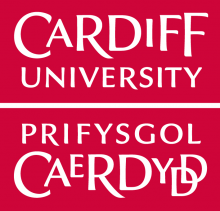The use of “naive” and “imprecise” metrics in the teaching excellence framework could thwart the government’s widening participation agenda, a university leader has warned.
Improving access for students from disadvantaged backgrounds is a key part of the higher education Green Paper, but Simon Gaskell, principal of Queen Mary University of London, told MPs that using data on graduate employment as a key measure of institutional performance in the TEF could “perversely work against” this.
Professor Gaskell, chair of the Universities UK quality assessment group, told the House of Commons Business, Innovation and Skills Select Committee that graduates’ success in the job market was shaped by a lot more than teaching quality, with financial and social privilege also playing a key role.
Speaking at the committee’s first evidence session on assessing quality in higher education, Professor Gaskell said that his institution would be “crucified” by a score based on graduate salaries, because a large proportion of its students come from disadvantaged backgrounds.
“Using imperfect metrics, naive and imprecise metrics, could have exactly the opposite effect to what we are all aiming for,” Professor Gaskell said.
Other metrics could create equally perverse incentives, Professor Gaskell argued: having a measure based on the proportion of first-class degrees awarded could lead to grade inflation, while one based on retention would create a temptation to lower standards, he said.
Professor Gaskell also took issue with the claim made by Jo Johnson, the universities minister, that the TEF was needed to deal with “patchy” teaching standards in the sector.
He acknowledged that not all lectures were of a uniformly high standard, but said that the term patchy “implies a level of problem that doesn’t exist”.
“The level of teaching, I believe, generally, is high,” he said.
MPs also heard from Colin Riordan, vice-chancellor of Cardiff University and chair of Universities Wales, who said that, even though there would not be the incentive of tuition fee increases, Welsh universities would probably want to take part in the TEF to illustrate their teaching quality.
Alastair Sim, director of Universities Scotland, told the committee that Scottish higher education institutions were happy with their quality assurance arrangements but may find themselves feeling that they needed to take part in the TEF for “international marketing” reasons.
Register to continue
Why register?
- Registration is free and only takes a moment
- Once registered, you can read 3 articles a month
- Sign up for our newsletter
Subscribe
Or subscribe for unlimited access to:
- Unlimited access to news, views, insights & reviews
- Digital editions
- Digital access to THE’s university and college rankings analysis
Already registered or a current subscriber?











